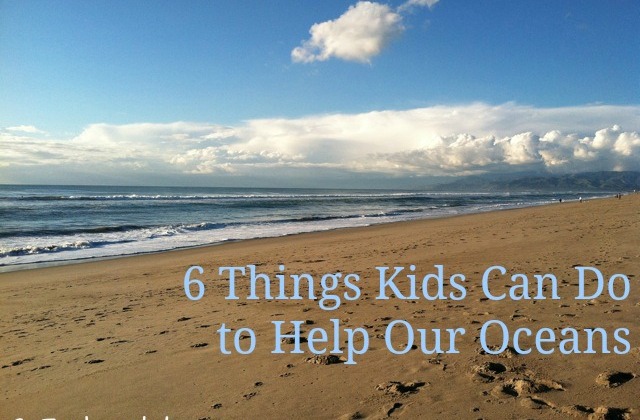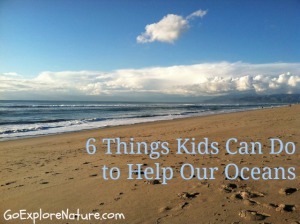As part of my month-long celebration of Earth Day, today I’m sharing things kids can do to help our oceans. (In case you missed it, last week was all about wild animals.) Later this week we’ll talk about ocean-themed books, then finish up with a list of the best beaches for families in Los Angeles.
Whether you live by the coast like we do or you’re miles from the nearest ocean, there are still things kids can do to protect a favorite beach (as well as a local river) and the animals that call it home.
1. Learn more about oceans and marine life.
The more kids learn about the issues facing the world’s oceans and the animals who call them home, the more they’ll want to help ensure their health. Read books, visit aquariums and head out to see the oceans for yourself.
2. Keep local water clean.
Talk about what happens to the litter that finds its way into the gutters along your street. Even young kids can understand a simple explanation of where water goes when it leaves your yard. Bottom line: Don’t litter.
3. Take a litter cleanup walk at the beach.
Don’t just clean up after yourself when you visit the beach. Bring along a trash bag and go on a litter cleanup walk.
4. Don’t interfere with the wildlife.
If you see a marine animal in distress or injured, do not approach, touch, pick up, feed or pour water on the animal. Instead, keep your distance and call a local wildlife center for help.
If you’re exploring a reef or tide pools, don’t poke at things, pull them off rocks or remove them from the water. And tread lightly – many rocks are covered with live mussels, barnacles or other marine life.
5. Turn water off when you don’t need it.
Using too much water is wasteful. Kids can use less by turning off the faucet when they brush teeth and taking brief showers. When you overuse water outside, it helps move trash to the ocean, so be responsible when watering and using the hose.
6. Get your own reusable water bottle.
Plastics that end up as ocean debris are a real problem for marine animals, destroying their habitat and worse.
Even though kids don’t necessarily control the products their parents buy, they can make some small changes to protect marine animals. Opt for reusable water bottles instead of plastic ones. Use non-disposable containers in lunch boxes. And recycle whenever possible – even if it means bringing items home from school to dispose of them in recyclable containers at home.






